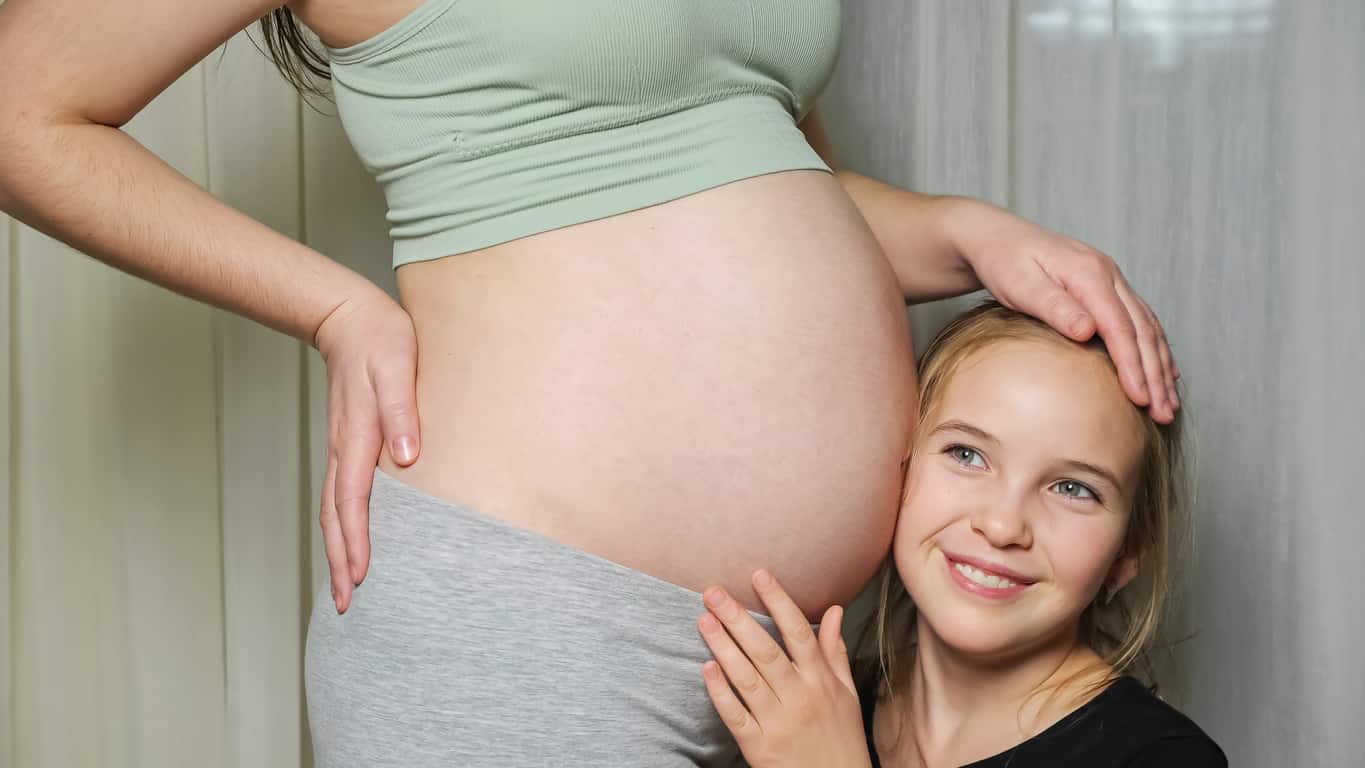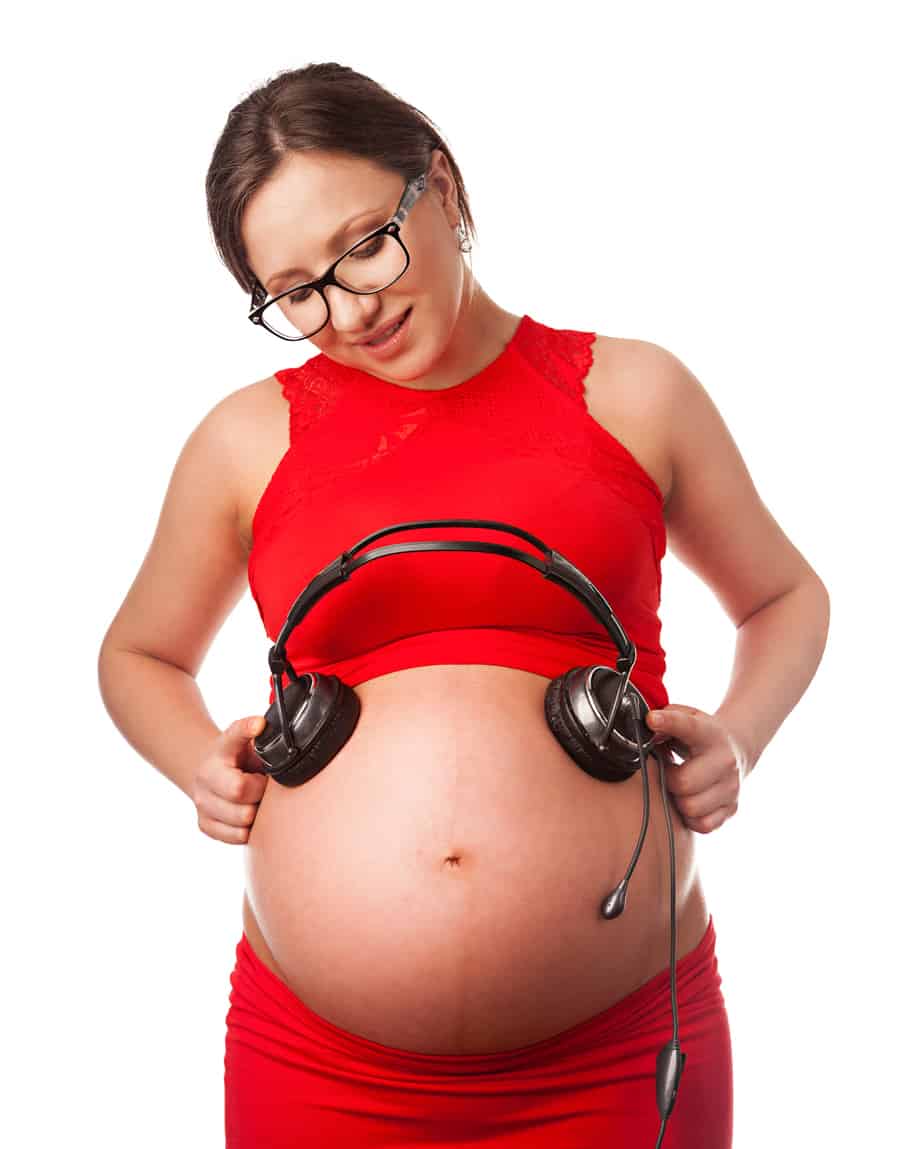

When Should I Feel My Baby Move During Pregnancy?
Pregnancy is an extraordinary and exciting time for any expecting mother, as she gets to experience the incredible journey of carrying her baby as it grows inside her womb. One of the most memorable moments during pregnancy is feeling your baby's movement for the first time. This can be an indescribable joy for pregnant moms and a sign that everything is going well with the pregnancy.
Key Points of Babies Moving During Pregnancy
- Movement either frequent or infrequent is completely normal and healthy. Movement helps to train the baby and you for labor.
- Reduced fetal movement or the baby not moving at all might be caused by a number of things. Talk to your doctor about any and all concerns.
- It's important to track your baby's movements. This can be vital information for your doctor and can tell if things are going on track or if something is a miss.
Most women should start to feel their baby move between 16 and 24 weeks of pregnancy, but this can vary from person to person. Some people may notice movements as early as 13 weeks or earlier if they have had multiple pregnancies. The movements can typically be described as flutters or bubbles in the lower abdomen, but some women might also feel kicks, jabs, and punches!

©VK Studio/Shutterstock.com
When Should I Feel My Baby Move During Pregnancy?
Movement is a sign of a healthy pregnancy. During the 16th to 24th weeks of pregnancy, your baby may start to have regular movements, which can be felt as fluttering or rolling sensations. It will definitely be a very exciting time for you and your partner.
These movements are caused by the development and growth of your baby's arms and legs. The movement also helps the baby practice for labor and delivery. As the baby grows, you will feel more intense movements, which can continue until birth. Note that each pregnancy and baby is different; some babies may move earlier or later than others.
What If I Don't Feel Any Movements?
Some women may not feel any movements at all during pregnancy. This is called "reduced fetal movement" and can be concerning for pregnant women expecting to feel the baby move regularly. Understand that this can happen due to a variety of reasons. Some of them include if the placenta is located in front of the baby, if the baby is not very active, or if it’s too early in the pregnancy for the baby to move a lot.
If you are worried about reduced fetal movement, talk to your doctor. They may recommend that you do a fetal kick count. This means counting and noting how often your baby moves in a specific time period. It will help you determine if the baby is healthy and active. Your doctor may also perform an ultrasound to check the baby’s health.
If you are still concerned, seek medical advice as soon as possible. Early intervention can help ensure your baby is healthy and growing as expected. Remember that every experience is unique, so if you don’t feel any movement at all, it doesn’t necessarily mean something is wrong. But you and your baby are safer when you speak with your doctor to be sure.

©iStock.com/Prostock-Studio
What Should I Do if I Feel My Baby Moving?
It is a good idea to keep track of your baby's movements so that you can discuss any concerns with your doctor. You can jot down when and how often you feel the movements in a diary or log. Get to know what constitutes regular activity for your baby and contact your healthcare provider if there is a sudden decrease in activity.
You may feel anxious about sudden or excessive movements. Speaking with a certified midwife or doula can help ease your mind. You can also talk to friends or family members who have been through pregnancy. They can provide valuable insight and reassurance.
Regularly monitoring your baby's movements during pregnancy is integral to staying healthy and safe. It is normal to feel anxious if you are not feeling any activities, but it is always best to speak with your healthcare provider if you are concerned. Knowing when to expect movement and what to do if you are not feeling anything can help you relax.
How To Get Your Baby To Kick
It can be exciting to feel your baby move during pregnancy! As the weeks progress and your belly grows, you may notice gentle kicks from your little one.
If you haven't felt any movement yet or want to encourage your baby to kick more often, here are a few tips to help stimulate the magic:
- Eat foods high in potassium, such as bananas, spinach, and yogurt, to help encourage baby movement.
- Drink plenty of fluids throughout the day to keep your body hydrated and ensure your baby stays active.
- Exercise regularly with activities such as walking or swimming to promote healthy circulation in the womb.
- Talk, read, or sing to your baby, as it can help stimulate movement in the womb.
- Play music for your baby to enjoy and move along with.
- Practice relaxation techniques such as deep breathing and visualization to encourage movements from your baby.
- Lie on your left side for 30 minutes before bed to provide more oxygen and nutrients to your baby, which can help stimulate movement.
- Try gently pressing on the sides of your stomach with your hands or a warm heating pad in circular motions, as this may help encourage movement from your baby too.
- Have an ultrasound scan to ensure your baby is healthy and active in the womb.
- Consult your doctor if you are concerned about your baby's movements or lack thereof.
If these don't work the chances are high that your baby will move on their own anyway. There's nothing wrong with gently encouraging your baby to move and with time they will be doing their own version of the macarena.

©iStock.com/SIphotography
What are Abnormal Movements?
Abnormal movements in pregnancy are movements that are not typically seen during a healthy pregnancy. These can include excessive fetal movement, reduced fetal movement, and changes in the baby's heart rate or breathing patterns.
They may indicate a problem with the health of either the mother or the baby. Medical professionals should constantly monitor these movements closely. Medical professionals should accord the mother immediate attention if they notice abnormal activities.
Abnormal movements may indicate potential issues, such as placental abruption, fetal distress, or preterm labor. They may also signal an increased risk for pre-eclampsia or gestational diabetes. In some cases, abnormal movements may be expected, such as when the baby is in an awkward position.
However, if there are any concerns, it is crucial to have a doctor assess the situation. Ultimately, stay vigilant and keep an eye out for anything that could indicate a problem with the health of the mother or baby.
What Causes My Baby To Move During Pregnancy?
All those kicks, jabbers, and flutters are an amazing feeling for moms-to-be! It also means for some moms, frequent bathroom breaks at all hours of the day and night. But what causes your baby to move during pregnancy? Here are some of the leading causes:
- Normal fetal activity - As the baby grows and develops in the womb, it’s normal for them to move around, kick, stretch, and even hiccup.
- Changes to your body - Hormonal changes during pregnancy can cause muscle cramps or spasms in both mom and baby, which may feel like movement.
- Mom's activities - Activities such as exercising or even drinking a lot of fluids can cause the baby to move more than usual in response to the changes around them.
- Eating certain foods - Certain foods can also cause your baby to move more due to increased nutrients in the amniotic fluid.
- External influences - Things such as loud noises or bright lights can cause your baby to move in response to the stimulation.
- Stress and anxiety - Stress and anxiety can also cause your baby to be more active than usual due to the release of hormones in the mother’s body.
- Stimulation from outside sources - Touching your belly or playing music to your baby can also cause them to move in response.
- Near the end of pregnancy - As the due date approaches, babies become more active as they prepare for birth. This is usually referred to as nesting behavior and can cause more frequent movement.

©iStock.com/Mladen Zivkovic
Conclusion
The moment one feels their baby move during pregnancy can be one of the most memorable times in a woman’s life. While there is a set time for when you should feel your baby move, it is essential to pay attention to any movements felt and inform your doctor if anything seems out of the ordinary.
With regular check-ups and monitoring, you can ensure that your baby’s health and development are on track. With lots of patience, you will surely experience the joy of feeling your baby move in no time!